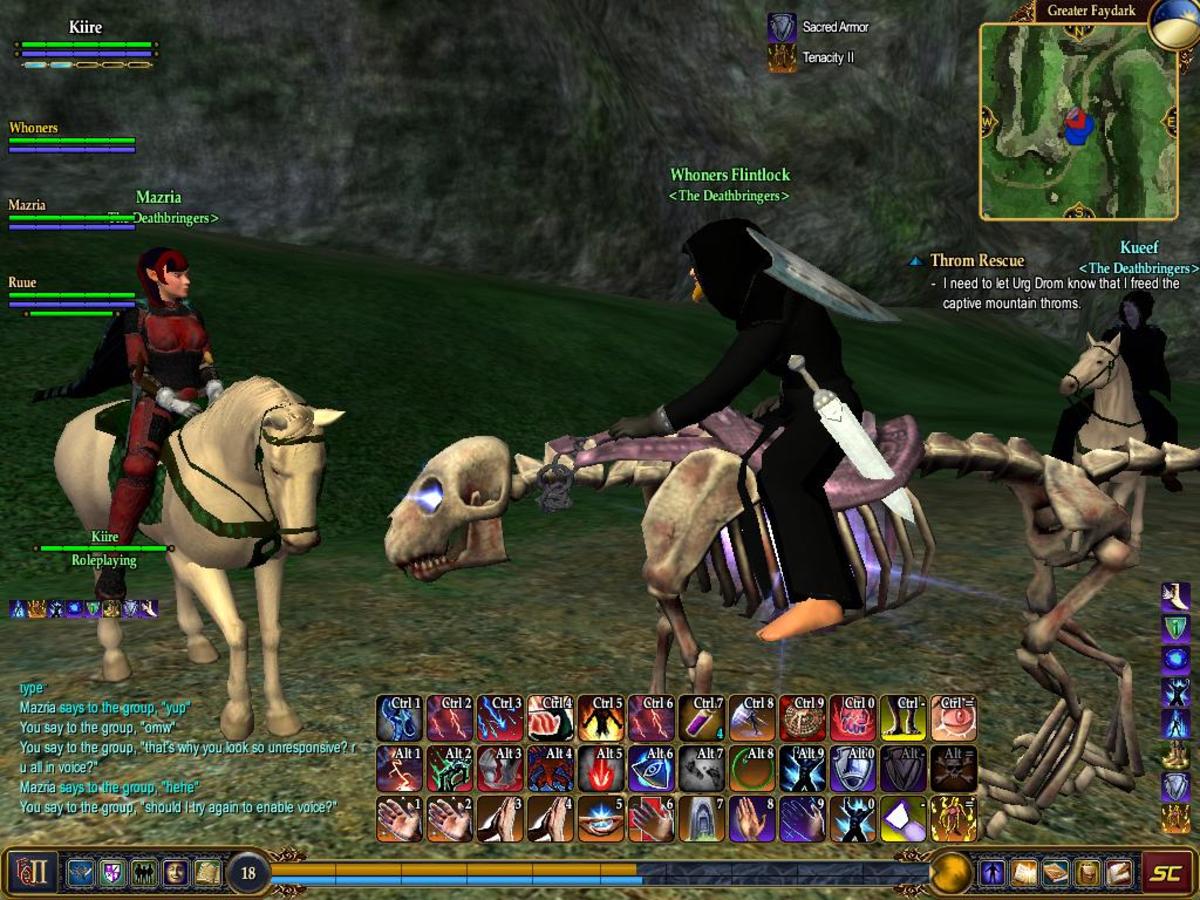- HubPages»
- Games, Toys, and Hobbies»
- Computer & Video Games»
- Online Video Games
Content Locust: How They Change The MMO Gaming Landscape
What is a Content Locust
The term content locust describes a specific type of gamer. In online Games, particularly MMORPGS like World of Warcraft, Aion, Rift, and The Secret World, these are the players who join as soon as the game comes out, they get to the level cap as quickly as possible, and they do all the end game content before a majority of the population is even midway through the game.
Generally speaking, their progression is so fast, when asked, they can't give too many details about the story of the game, or the lore, not to say they don't read any of the quest, but the retention and reading of every quest they take is just logistically improbable.
These are the elite in the mmo gaming world. They are able to do the content before there are guides everywhere about them, they have all the best gear, and the most money from being able to sell rare item drops from the end game world before anyone else, when the prices are high.
As such, they control a large portion of the economy in the game world, and their opinion holds a great deal of weight with a lot of players, whether we want to admit it or not.

The MMO Community
he problem with this is the effect it has on the gaming community. To understand this a little better here is a basic breakdown of the MMO gaming world:
Isolated Gamer: These are the people that log in, play their game, don't talk to anyone or do group content, they are fairly rare in the MMO gaming world but they are out there. They are vastly unaffected by the problem that is being discussed.
Casual Gamer: The casual gamer doesn't really go on forums or push into the most difficult aspects of the game. If they do go to forums, it is mostly to read, and rarely post. They do the content that is easily accessible, they socialize and have friends in the game, and do not necessarily define fun with success in character progression.
Dedicated Gamer: These are very similar to Casual gamers, only they will spend more time on character progression, and typically participate in forum discussions, on the games site and in general gaming discussion sites like mmorpg.com. They still don't put too much investment in their characters though, but do play with goals in mind.
Hardcore Gamer: These players are the step between dedicated and the Content Locust. These are the people in progression guilds, they see the endgame content first, do hardcore modes, and generally have the rarest and most difficult achievements and items. They make strategies that the rest of the players will follow. Are a very vocal minority on the forums, and change the landscape of the game as such.
Content Locust: Aside from what was mentioned above, it should also be noted that this part of the population in a game is generally less than 1% but the effect they have on games and the gaming industry is much larger than that.
Where are you?
According to the definitions given above, where do you see yourself in the MMO Community?
What is the problem?
The problem with content locust is far reaching. At the very top of the list, they blow through a game developers took years to make in a matter of weeks. Then this very vocal part of the community then generally go on the forums and say two things,
-
That this game has nothing to do at the end game.
-
It is too easy, and there is no challenge.
This affects the game in one major way, for casuals to hardcore gamers when choosing a new game to purchase or resubscribe to, a common first step is to check out the forums and see what is being said. Since content locust are so vocal about their triumphs and how easy it was, it turns a lot of new players off to the idea of the game, and that cost the game company revenue.
It also is demoralizing to the community in general. Casual and dedicated gamers by far make up the majority of almost any games population. I would say easily 90% but I really don't have any research to prove this other than more than a decade of personal observation. But when these elite gamer snobs (another term for content locust) go on and on about how simple and easy something a large portion of the community is struggling with, or possibly doing, but it is far from simple to them, it makes them not want to try, and certainly not want to do anything more difficult.
Over time difficulty changes as well. When the vocal feedback constantly says “this was too easy” and casuals and dedicated gamers don't voice out enough and say “It was just right” or “It was too hard” a game company is eventually going to make a correction in the difficulty, which will ultimately not make the content locust happy, because once they have mastered the new content, they will be discontented again, and it will lock a large portion of the player base out of content they used to see, but now is too difficult.
This will make them quit, the company looses money, which makes development more difficult. While they had the resources to recoup, the change in World of Warcraft from Wrath of the Lich King, to Cataclysm is a very good example of this.
Why The name Content Locust?
This is why this part of the community is called content locust. They consume the content and befoul it with negativity so voraciously that they eventually make the game barren, and most players will move to other games, or even out of the MMO genre. For being such a small part of the community, they have the biggest effect on it.
The only real way to stop them is rather simple. These are the people who want attention for for being better than others, the boast and patronize, so just ignore them. Don't respond to their forum threads, don't try to join their guilds. It's one thing to try to push yourself in a game, that can be fun in its own right, but when you define your fun by keeping other people from having fun themselves, at this point your a content locust.
So if you are a content locust, now you know, and that's the first step to recovery





